When the Trail Disappears
A Lesson From the Mountains
At 29, I found myself between chapters. After years building, most recently as CTO at Fundwell, I’d stepped away to figure out what came next. I was experimenting with AI projects, building solutions for various companies, but the pause felt necessary. The kind that makes you notice you've been holding your breath.
A Georgian friend had been suggesting I visit her country. When a well-traveled friend mentioned it as one of the few places that had genuinely surprised him, I booked a flight. Sometimes the best decisions are the ones you make before you can overthink them.
Juta
Tbilisi revealed itself slowly. Orthodox churches with their particular weight, hospitality that functions as both social contract and art form. But after a few days, my friend suggested something different. "You should see the mountains. Go to Juta."
Juta sits at the edge of what's accessible. A village that serves mainly as a launching point for serious hikers. The guesthouse owner mentioned Chaukhi Pass when I asked about day hikes. It was 10 hours round trip, 10,951 feet at the summit. I'd done similar elevation in Hawaii, New Hampshire and Costa Rica. The logistics included four liters of water, offline maps downloaded, and an early start.
The Ascent
The first hours unfolded predictably. My running conditioning meant I was passing most other hikers, though a French trail runner kept pace for a good amount of time. At one point I caught up with Steve from New Mexico, sixty-two, who climbs a 10,000-foot peak every week at home. “Keep going,” he said, which seemed both obvious and profound given the circumstances.
Descending toward the lakes, I noticed a shepherd managing what must have been a hundred sheep across the hillside. I'd just finished The Alchemist on the flight over, a detail that would feel too convenient if it weren't true. Sometimes patterns present themselves whether you're looking for them or not.
Miscalculation
The return route on my map showed a more direct path up the mountain. The grade was severe enough that calling it a trail was generous. That wasn't clear until I reached it. Two thousand feet of loose scree at what I'd estimate was a 50% incline.
I had maybe four swigs of water left. Five hours of sun exposure already. Phone battery at 20%. The kind of situation where you realize your morning confidence was based on incomplete information.
The rational choice would have been to backtrack, take the longer but known route. Instead, I found myself creating arbitrary rules. Ten steps minimum before resting. When that became unsustainable, seven. Then five. The gravel shifted with each placement. Thorny shrubs offered handholds that extracted their price.
Elevation
There's a particular clarity that comes with genuine physical difficulty. The internal narrative quiets. The questions that seemed urgent at sea level, about career trajectories and optimization, become wonderfully irrelevant. You're reduced to basics. Water, distance,light.
Halfway up, the water was gone. I turned off the music I'd been playing to preserve battery. The only sounds were my breathing and the occasional cascade of displaced rocks. Looking back, the lakes had become blue coins in the valley below.
The mind does interesting things in these situations. I found myself thinking about turning thirty in three months, about the patterns I'd carved through my twenties, the speed-run through mistakes and failures, the relentless dedication to growing and building.
I asked myself questions like, “What do I actually want?” “Who am I when I'm not optimizing or impressing anyone?”
The mountain doesn't care about your accomplishments. You're rationed to ten steps at a time, and somehow that limitation becomes its own kind of clarity.
Descent
The summit was anticlimactic in the best way. Just a ridge line, wind, and the understanding that everything from here was downhill.
A mile on, I found a stream. The water was cold and tasted faintly metallic. I drank slowly, then filled every container I had.
The sunset, when it came, rendered the landscape in that particular light photographers call the golden hour but which feels inadequate to describe the actual experience. The flowers were dense enough in places that the trail disappeared entirely. You had to trust it would reemerge.
Return
I reached the guesthouse as darkness began to settle. Sitting outside, I pulled out my notebook. A habit from years of capturing requirements and system designs, now turned to something else entirely.
I wrote about the hike, but mostly I wrote about what happens at twenty-nine when you realize you've been so focused on the next summit that you forgot to notice you were already climbing. The water ran out, the battery died, the trail disappeared. I kept going anyway.
Steve from New Mexico had it right. The secret to climbing mountains in your sixties is to never stop climbing them. Sometimes you take the steeper path because you're curious about the view from up there.
The Georgian mountains reminded me that I already knew how to navigate without a clear trail. Ten steps at a time, even when the water's gone.
---
For those navigating their own transitions or contemplating that steeper path, I'm collecting stories and building community around these inflection points.
Reach out at a@thesimple.co.


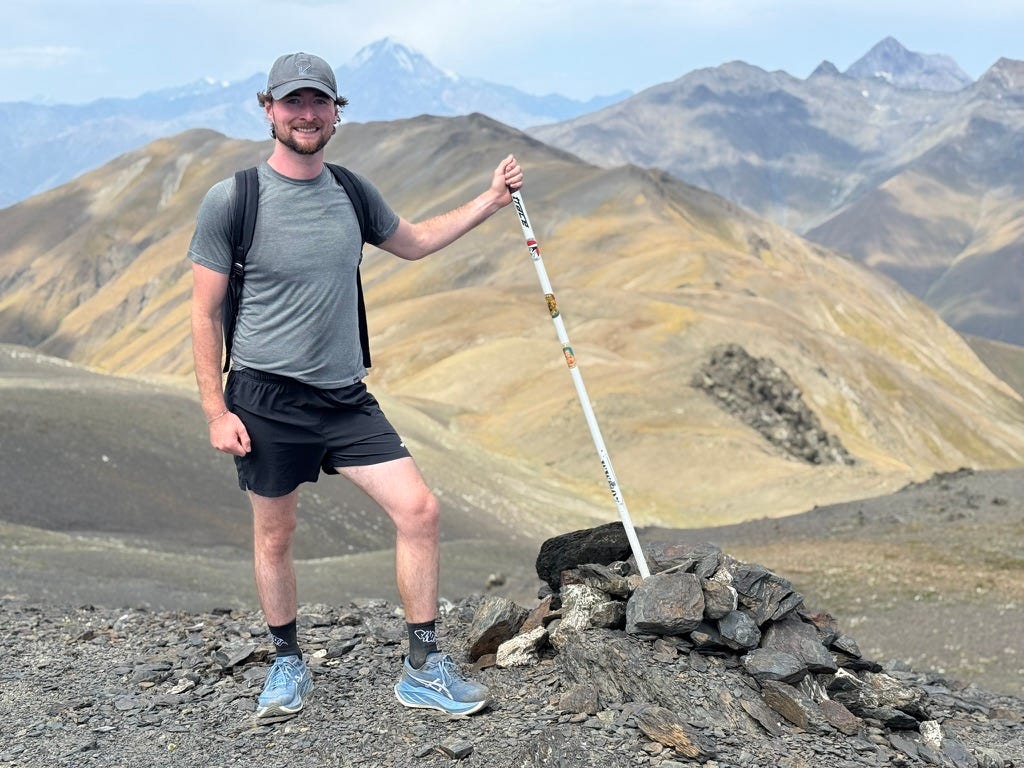
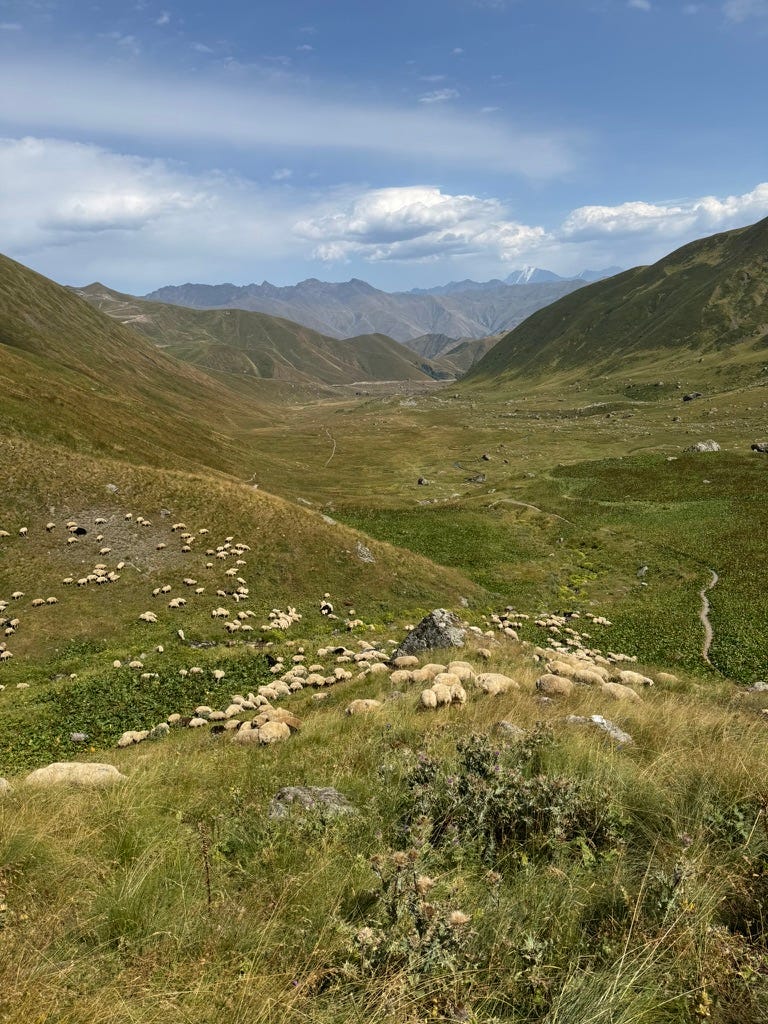
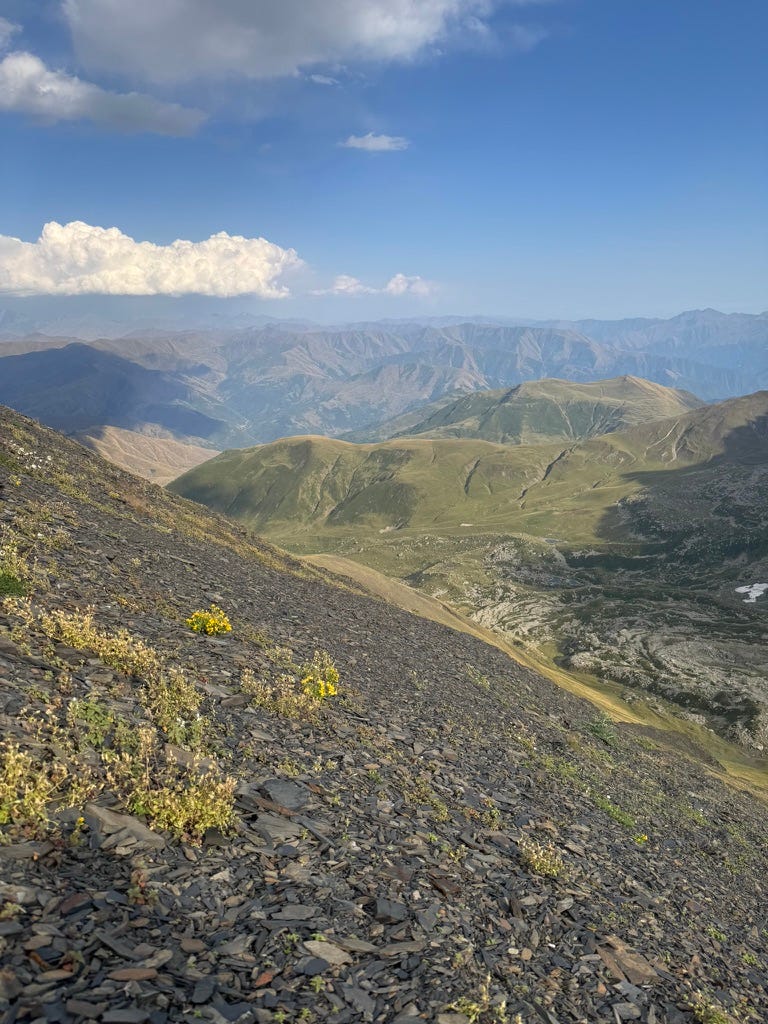
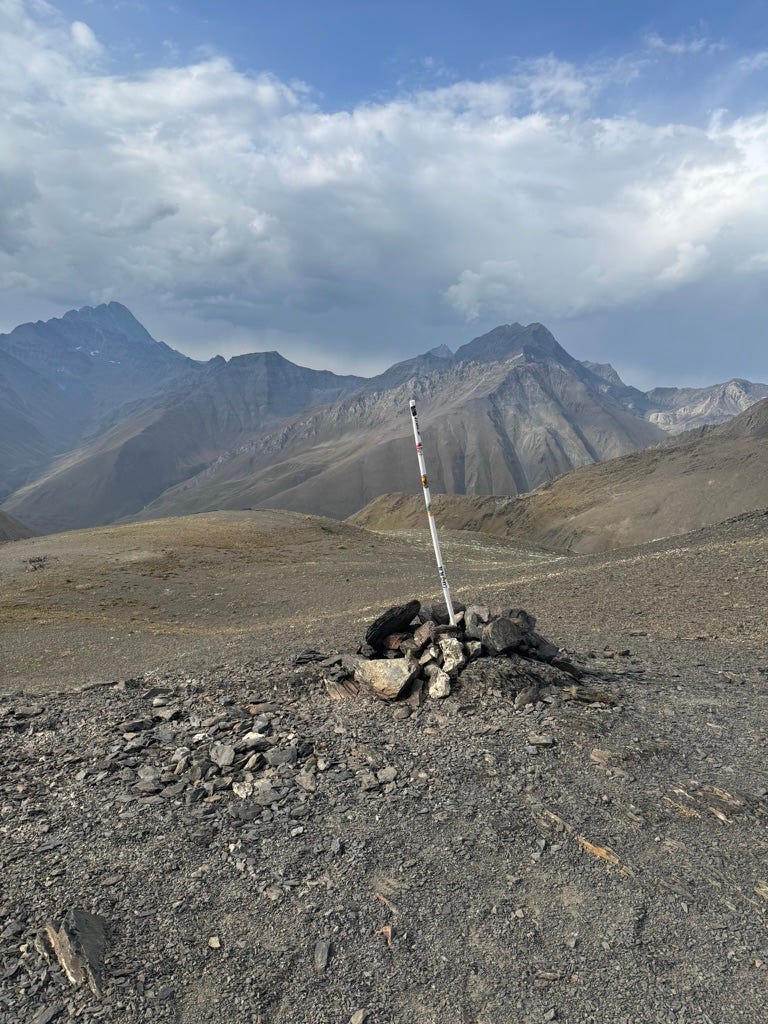
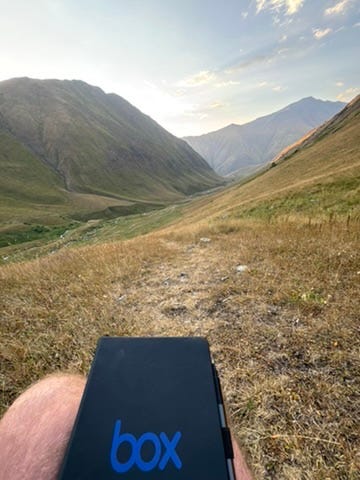
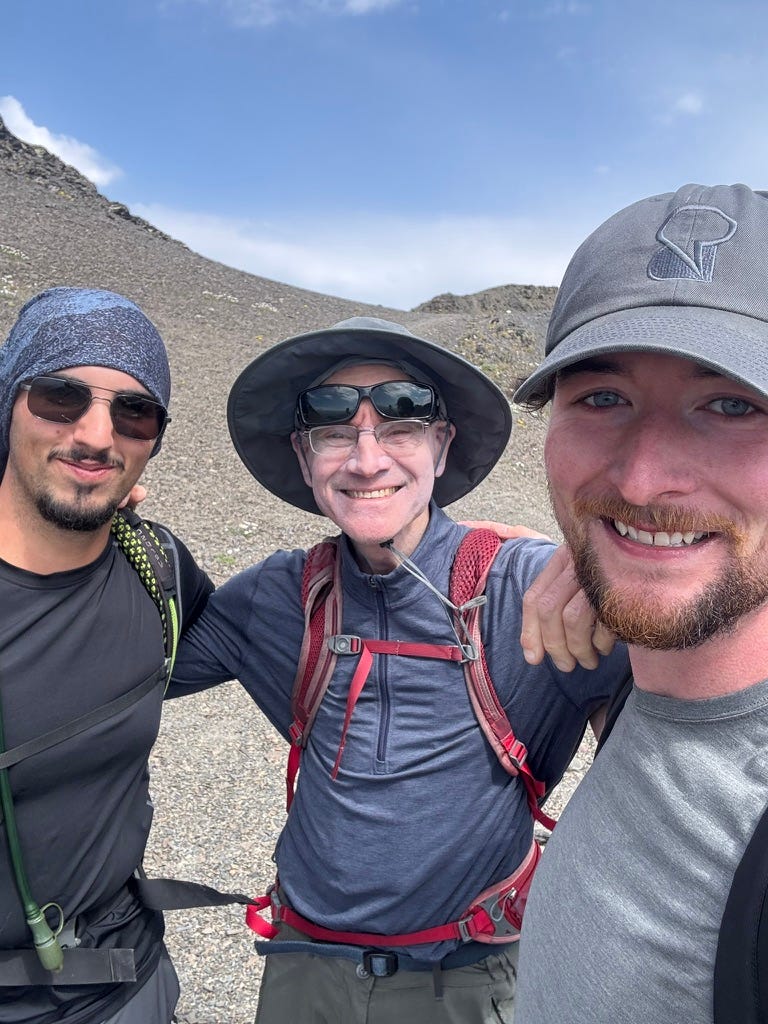
I really thought for a second this was going to be sponsored by Box.